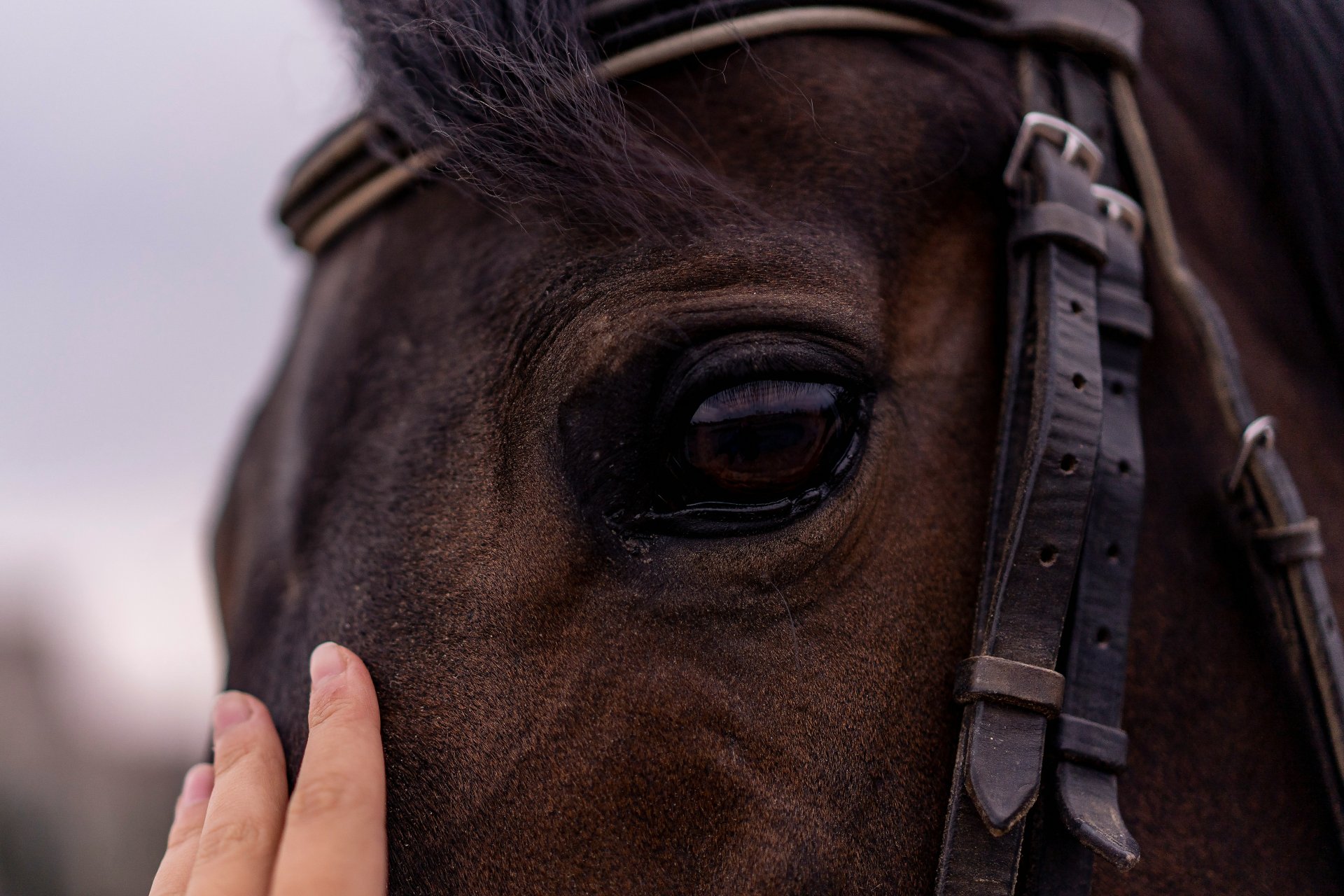
Proper daily care is the cornerstone of every horse' s health, happiness, and performance—whether they are elite competitors, working horses, or beloved companions. Modern equine science has revolutionized traditional care routines, integrating cutting-edge technology and evidence-based practices to enhance well-being and longevity. This comprehensive guide explores the daily management of horses, from stable conditions and nutrition to grooming, exercise, and mental enrichment, providing actionable insights for owners, riders, and stable managers.
Morning Health Assessment & Stable Management
1.1 The 10-Minute Health Check
Before feeding or turnout, a thorough morning inspection ensures early detection of potential health issues. Key steps include:
● Vital Signs Monitoring:
○ Temperature (Normal: 99–101°F / 37.2–38.3°C)
○ Pulse (28–44 BPM at rest)
○ Respiration (8–16 breaths per minute)
○ Capillary Refill Time (Should be <2 seconds)
● Physical Examination:
○ Hoof Check: Look for cracks, heat, or swelling.
○ Coat & Skin: Scan for rashes, wounds, or hair loss.
○ Gut Sounds: Listen for digestive activity (3–5 gurgles per 15 seconds).
Pro Tip: Infrared thermography cameras can detect early inflammation before it becomes visible.
1.2 Stable & Bedding Innovations
A well-maintained stable environment prevents respiratory and musculoskeletal issues. Modern best practices include:
● Bedding Options:
○ Bamboo Pellets (Highly absorbent, low dust)
○ Antimicrobial Mats (Reduce bacterial growth)
○ Rubber-Crumb Mix (Provides cushioning for joints)
● Air Quality Control:
○ Automatic Ventilation Systems (Maintain oxygen levels)
○ Ammonia Sensors (Alert when levels exceed 5ppm)
○ HEPA Air Filters (Reduce dust and allergens)
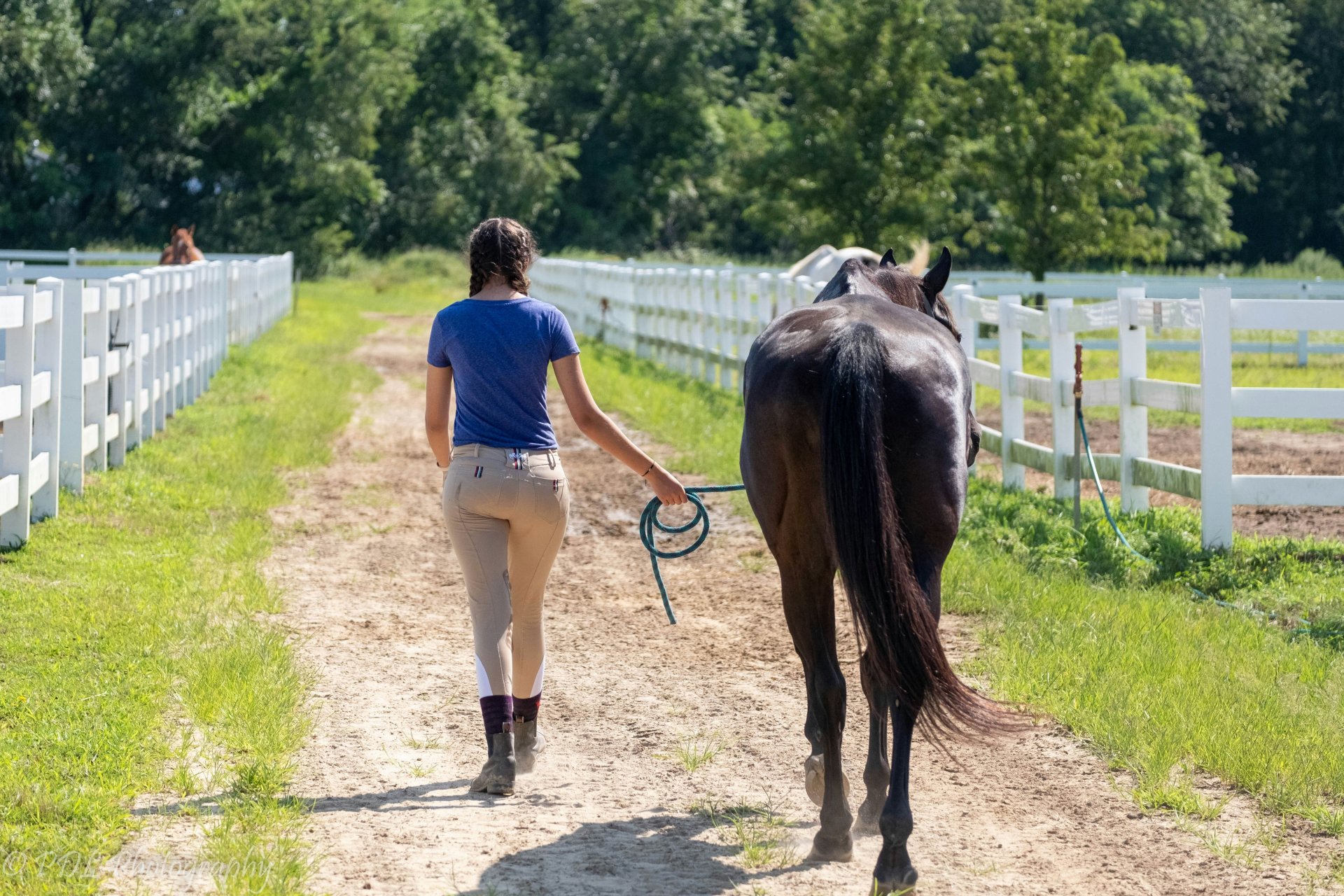
Nutrition & Hydration for Peak Health
2.1 Feeding Schedule & Balanced Diet
Horses require a structured feeding regimen to maintain digestive health and energy levels.
● Sample Daily Feeding Plan:
○ 6:00 AM: High-fiber forage (grass hay or haylage)
○ 12:00 PM: Balanced concentrate feed (protein, vitamins, minerals)
○ 4:00 PM: Additional forage + electrolytes (if in work)
○ 8:00 PM: Slow-feeder hay net (prevents ulcers)
● Key Supplements
○ Probiotics (Support gut microbiome)
○ Omega-3 Fatty Acids (Reduce inflammation)
○ Joint Support (Glucosamine, MSM, Hyaluronic Acid)
2.2 Smart Water Management
Dehydration is a leading cause of colic and poor performance.
● Daily Water Requirements: 5–10 gallons per 1,000 lbs of body weight.
● Innovative Solutions:
○ Automatic Waterers with Flow Meters (Track intake)
○ Electrolyte-Infused Water (For hot climates or heavy work)
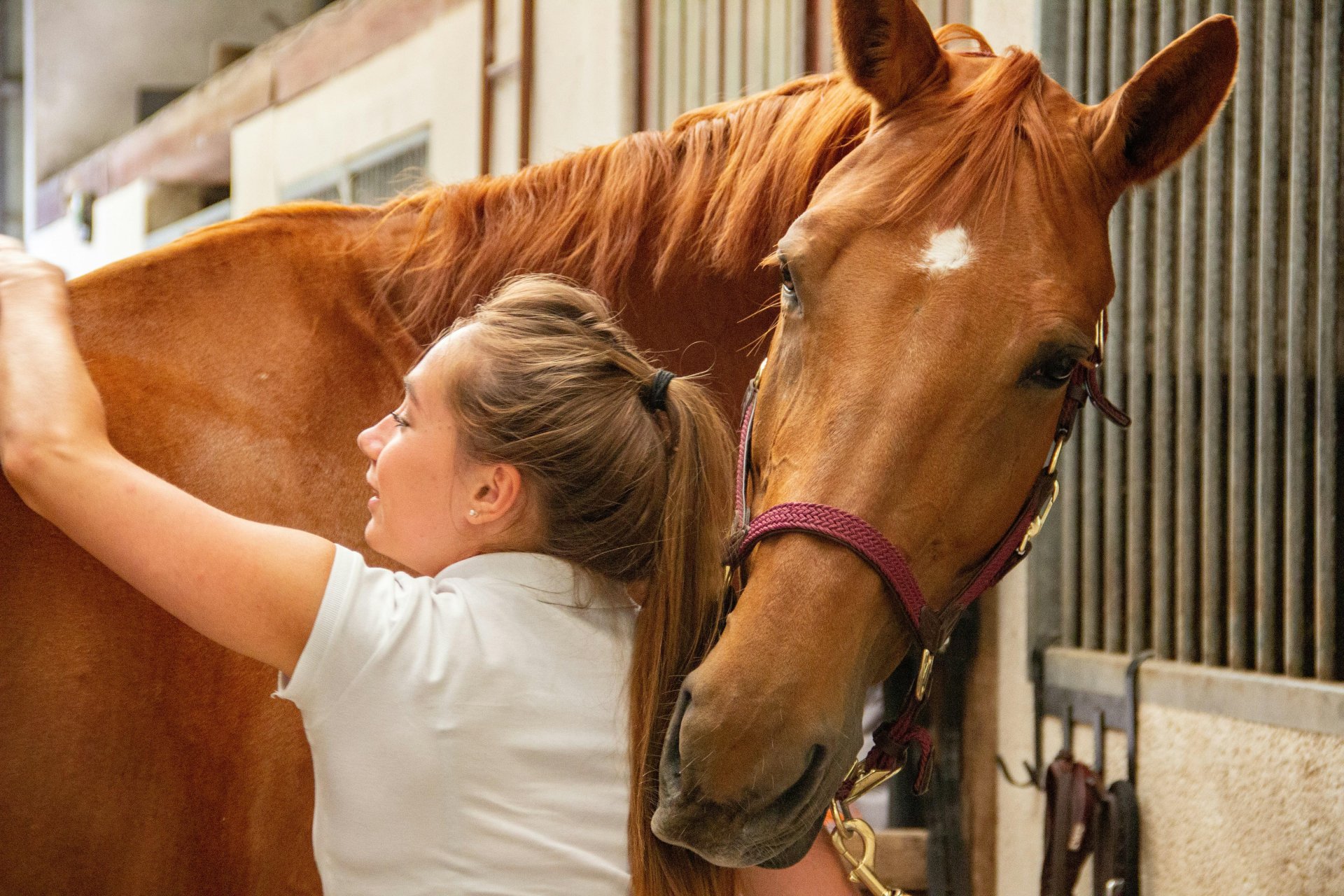
Grooming & Coat Care
3.1 The 5-Step Grooming Routine
Daily grooming enhances circulation, detects injuries, and strengthens the bond between horse and handler.
1. Curry Comb (Rubber or Magnetic): Loosens dirt and stimulates blood flow.
2. Dandy Brush: Removes surface debris.
3. Body Brush (Soft Bristles): Polishes the coat.
4. Hoof Pick + Disinfectant Spray: Prevents thrush and abscesses.
5. Mane & Tail Detangler: Prevents breakage.
Advanced Tools:
● Laser Coat Scanners (Detect nutrient deficiencies)
● UV-Protective Coat Sprays (Shield against sun damage)
3.2 Hoof Care & Farrier Best Practices
● Daily Inspection: Check for stones, cracks, or abnormal wear.
● Farrier Visits: Every 6–8 weeks for trimming/shoeing.
● Modern Alternatives:
○ 3D-Printed Horseshoes (Custom-fit for performance)
○ Composite Shoes (Lightweight, shock-absorbing)
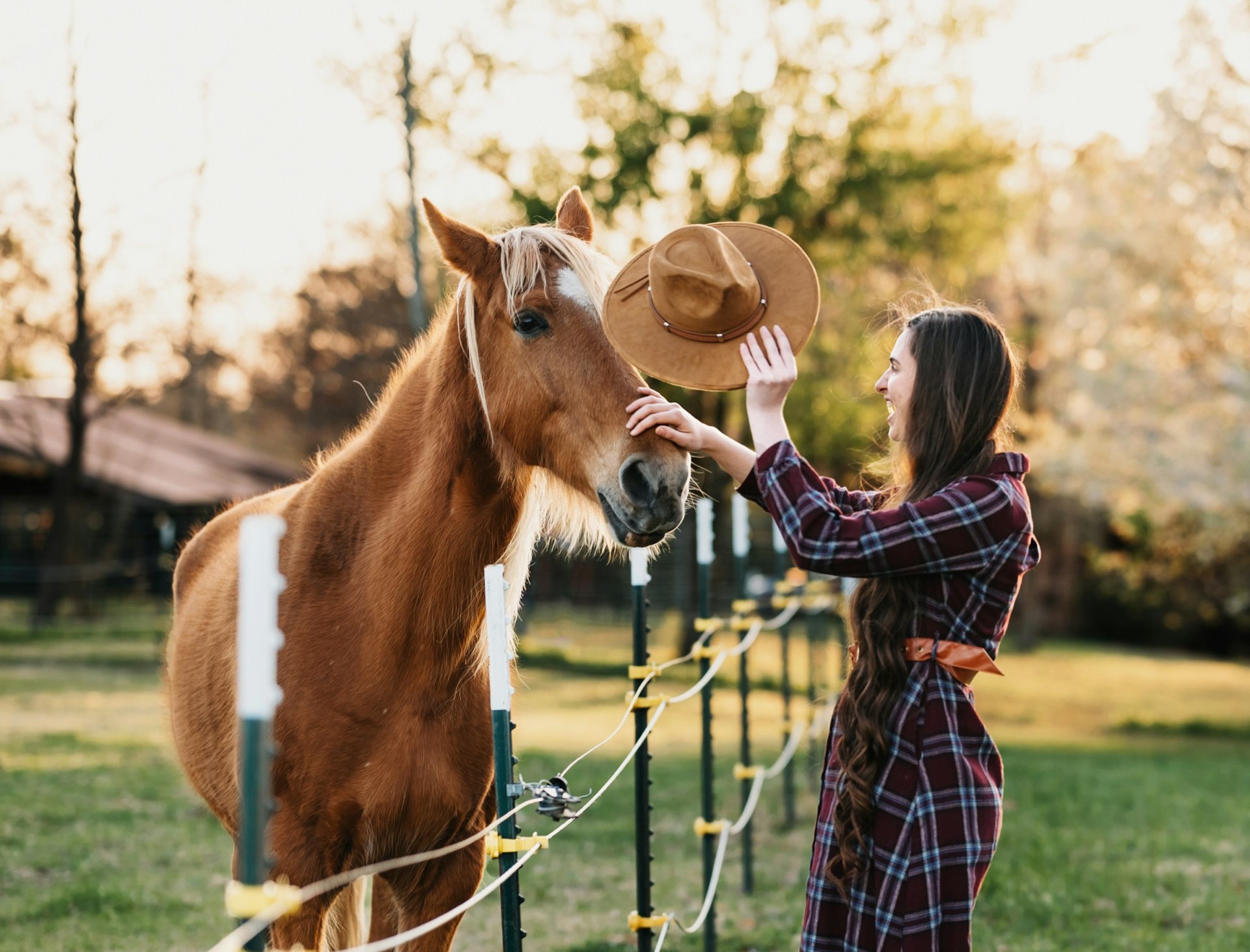
Exercise & Mental Stimulation
4.1 Daily Movement Requirements
Horses need consistent exercise to maintain muscle tone and mental well-being.
● Turnout Time: Minimum 4–6 hours daily (prevents stiffness and boredom).
● Structured Workouts:
○ Walking (30–60 min): Enhances circulation.
○ Trotting/Cavaletti Work (15–20 min): Builds topline.
○ Stretching & Massage: Improves flexibility.
4.2 Enrichment Activities
● Puzzle Feeders (Encourage natural foraging behavior)
● Obstacle Courses (Boost confidence and coordination)
● Equine Playgrounds (Sand pits, water treadmills, and hanging toys)
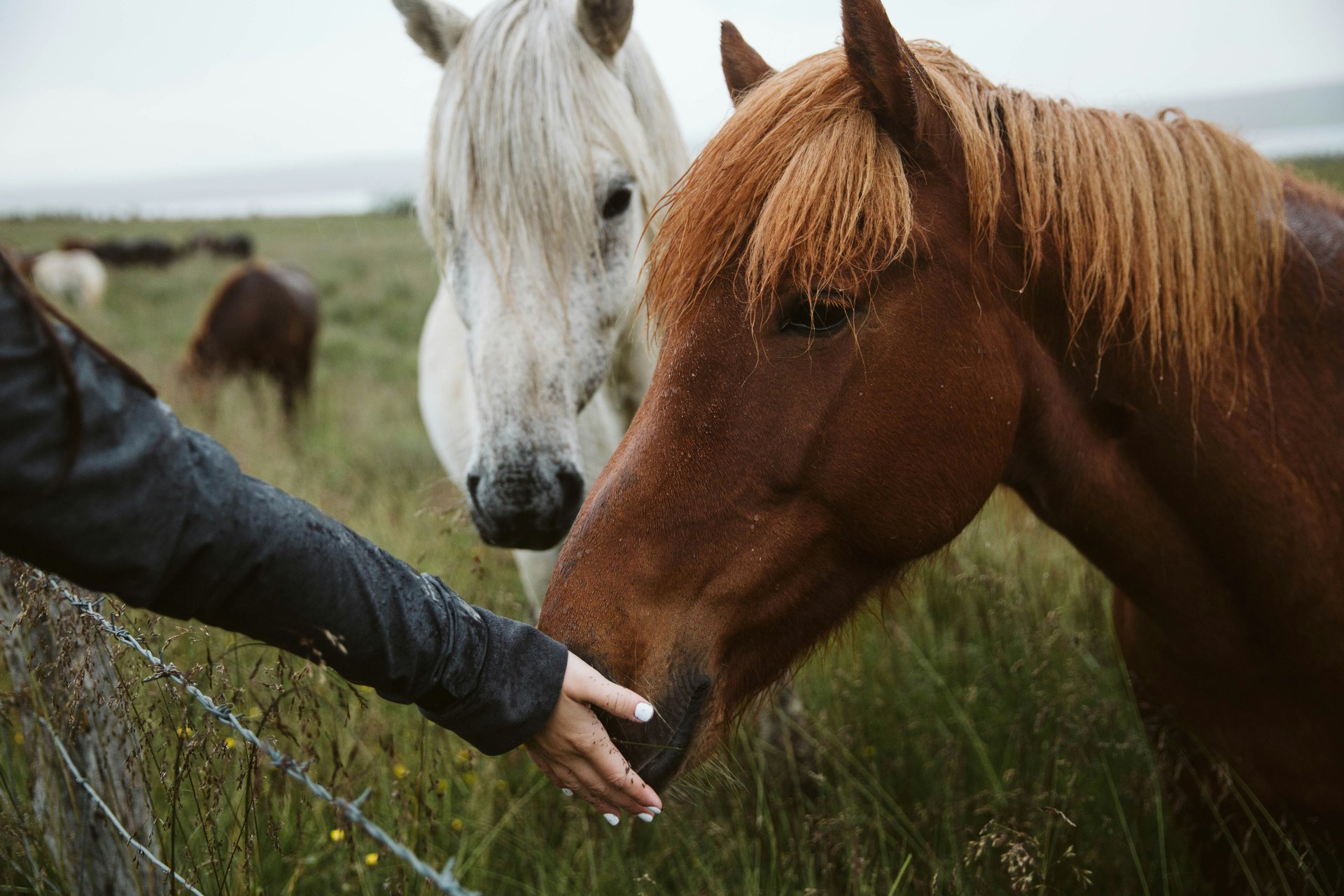
Evening Routine & Nighttime Care
5.1 Pre-Bed Health Check
● Leg Wrapping (if needed): Support tendons overnight.
● Final Hay Net: Prevents acid buildup in the stomach.
● Nighttime Monitoring:
○ Motion Sensors (Alert for excessive rolling or distress)
○ Sleep Trackers (Monitor REM cycles)
5.2 Stable Environment Adjustments
● Dim Lighting: Encourages restful sleep.
● White Noise Machines: Mask stressful sounds.
Conclusion: A Healthy Horse is a Happy Horse
By integrating modern science with traditional horsemanship, owners can ensure their horses thrive in all aspects of daily life. From smart stable tech to precision nutrition and mental enrichment, every detail contributes to long-term well-being.